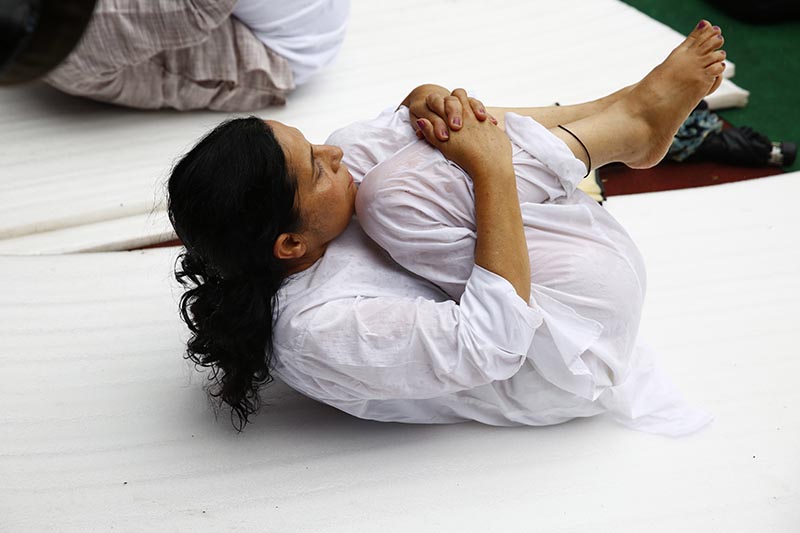Yoga can stave off non-communicable diseases, risk of depression, says WHO
Kathmandu, June 21
Yoga can be practised at all ages and the only requirement is a commitment to better health and a willingness to gently stretch, exercise and invigorate one’s body and mind, says World Health Organisation Regional Office for South-East Asia on the occasion of International Day of Yoga.
“It can help kids get the 60 minutes of daily activity needed to set up a lifetime of good health. It can help adults reach the 150 minutes of weekly activity needed to stave off non communicable diseases. For persons aged 65 and above it can help reduce the risk of depression and maintain cognitive functioning,” read a press statement issued by Dr Poonam Khetrapal Singh, WHO regional director for South-East Asia, which comprises 11 members states, including Nepal.
The International Day of Yoga, draws a critical link between healthy lifestyles, physical activity and individual and public health. “Non-communicable diseases cause an estimated 8.5 million deaths in the region every year. Many are premature; nearly all are lifestyle related. An alarming 70 per cent of boys and 80 per cent of girls in the region report insufficient physical activity,” she warned.
According to Dr Khetrapal Singh, though each of us should develop our own health-positive habits, community initiatives that promote physical activity in all forms are key to creating society-wide change needed. “Schools, for example, can provide a physical and social environment that promotes physical activity. Physical activity – including yoga – can be built into classroom lessons, while extracurricular pursuits can be encouraged and facilitated. Workplaces can integrate physical activity into their operations,” she said, adding green public spaces such as parks and sports fields could facilitate recreational and organised sport.
Though finding time for exercise can be challenging, it is fundamental to life-long health and well-being. The 5,000-year-old practice of yoga is considered an effective way to increase strength and flexibility, enhance cardio-fitness, burn calories and relax the mind. It has also been known to help cultivate routine and integrate physical activity into daily life, said the WHO.
READ ALSO:






